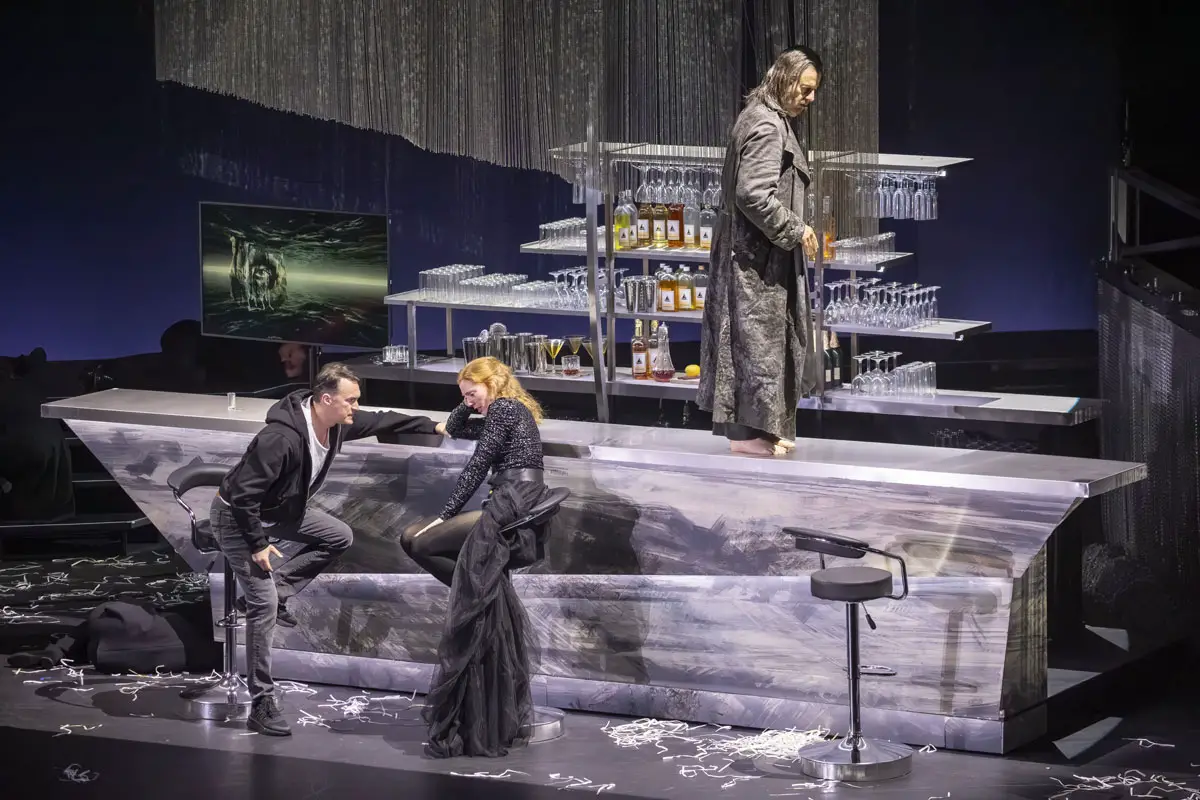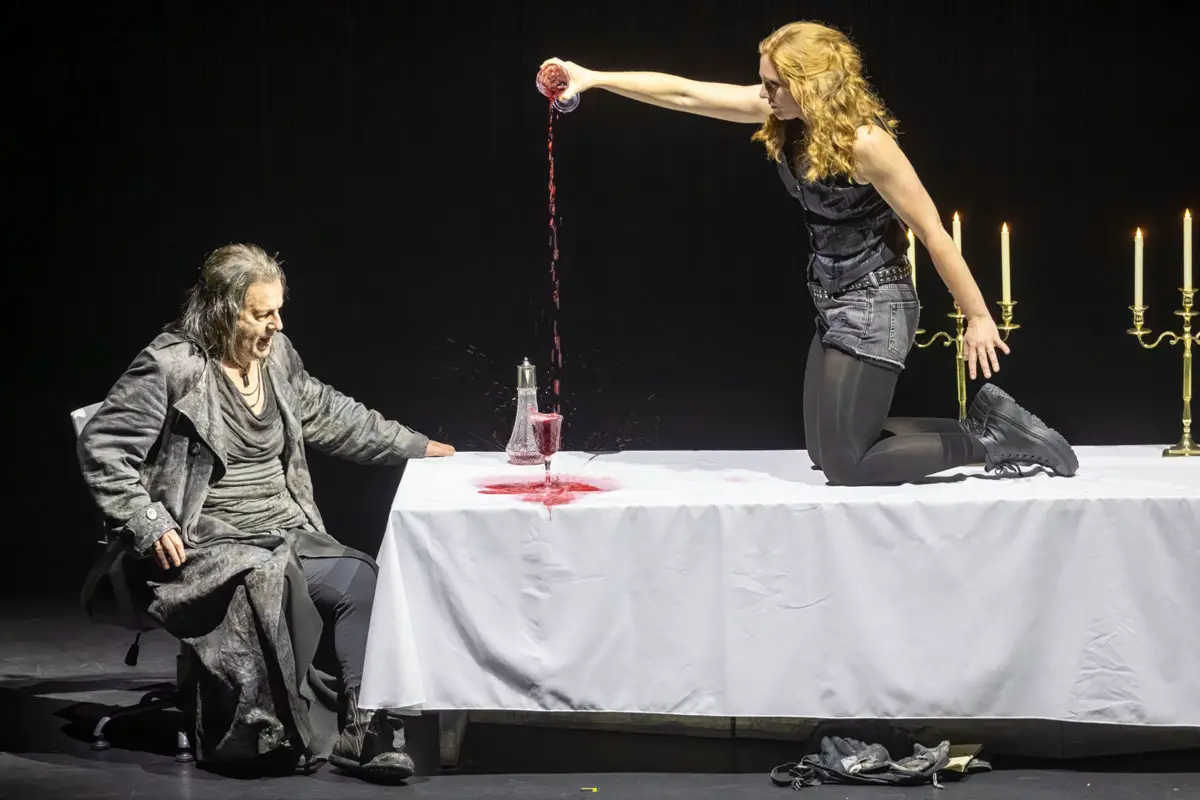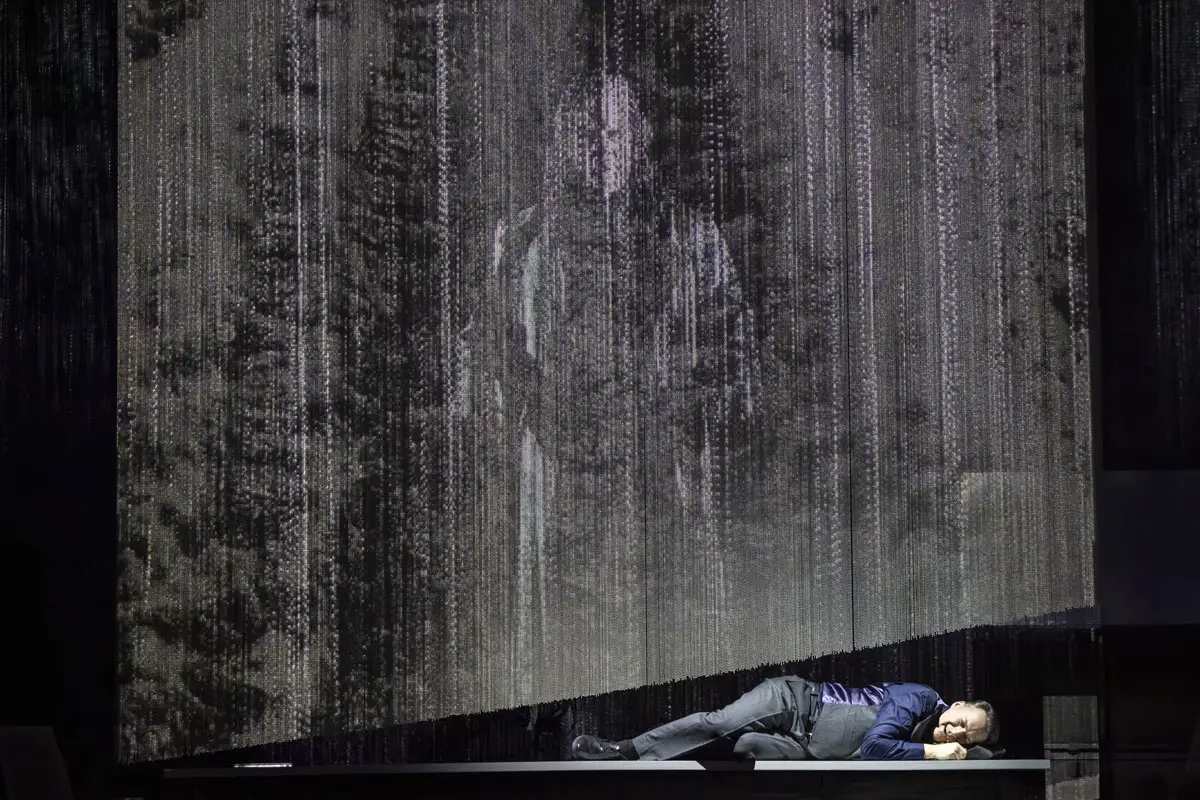The Flying Dutchman [Opera North] – Review – Grand Theatre, Leeds
![The Flying Dutchman [Opera North] – Review – Grand Theatre, Leeds (2)](https://www.on-magazine.co.uk/wp-content/uploads/The-Flying-Dutchman-Opera-North-–-Review-–-Grand-Theatre-Leeds-2-750x375.jpg)
By Gail Schuster, February 2025
Wagner’s dark, romantic opera opened in Leeds on a suitably dark February evening to a full house.
The Flying Dutchman was Wagner’s first real success, and, unlike many operas, he both composed the music and wrote the libretto. At the time, he was young, broke, and fleeing from creditors when he took a ship to London. The journey took three times longer than expected due to the severe weather encountered en route. This traumatic experience likely influenced his writing of the production.
The opera is based on the old European legend of a sea captain cursed to wander the seas forever. He may only make landfall once every seven years to search for a woman who will be truly faithful to him. He meets Daland and offers him money in exchange for the hand of his only daughter, Senta.
Senta is already aware of the Dutchman’s curse and is full of empathy for his plight. This dismays Erik, her betrothed, who loves her deeply. The Flying Dutchman is a story of redemption, heartbreak, and sacrifice.
“Sense of movement”
From the opening of the overture, the orchestra evokes the swell of the waves and the roar of the winds, particularly through the lower strings and timpani. Wagner developed the concept of leitmotifs—recurring musical themes associated with particular characters or situations. The motifs for both the Dutchman and Senta are first heard in the overture.
Annabel Arden directed this reimagined version of the opera. The first act is set in the Home Office, with Daland steering the ‘ship of state’ to safety. While I was not entirely convinced by this concept, I still very much enjoyed the production.
The staging throughout was highly effective—monochrome and austere. This opening sequence was no exception, except for the bright red lanyards worn by the Home Office workers, perhaps a nod to the ship’s red sails mentioned in the libretto, or even a reference to the present government. Joanna Parker designed the sets, costumes, and videos used throughout, and they all worked seamlessly together. The symbolism of chains is present in all three acts. The backdrop consisted of silver chains onto which videos were projected, shimmering like the sea and creating a sense of movement. Two asymmetrical curtains of chains at the centre of the stage were lifted and lowered as needed, serving as both a video screen and a representation of the ship’s sails.
“Extensive chorus”
Bass-baritone Robert Hayward took the lead as the anguished Dutchman, bringing gravitas and presence to the character. Mari Wyn Williams sang the role of Senta from the side of the stage, while Layla Claire acted the part due to illness. Despite this setback, Williams and Claire made it work beautifully. I particularly enjoyed Senta’s ballad in Act II and Fort Auf Das Meer in Act III, which features all three characters in the unfortunate love triangle.
Tenor Edgaras Montvidas took on two roles in the production—Erik and the Steersman. Daland, the father who strikes a shabby deal for jewels with the doomed mariner, was portrayed by Clive Bayley, whose full-bodied voice, alongside Hayward’s, dominated Act I. There is a distinctly masculine feel to the first act, which contrasts well with the opening of Act II, where female voices emerge, including contralto Molly Barker as Daland’s secretary, Mary.
The extensive chorus excelled throughout, and both the choreography and singing at the beginning of Act III were outstanding. I particularly loved how the movement of the chorus mimicked the rolling waves as the Dutchman’s ship returned. Angelo Smimmo’s movement direction was sublime throughout.
“Powerful”
Wagner originally wanted his masterpiece to be performed in a single, uninterrupted sequence. Fortunately for theatre-goers, venues had other ideas. The Grand Theatre also assisted the audience by providing English translations at the side of the stage, ensuring that the challenge of following a German-language production was removed.
There are many ways to embrace the long winter nights, but attending an opera that explores the depths of human emotion through powerful, world-class music and song is certainly one worth considering.
‘The Flying Dutchman’ is at Leeds Grand Theatre until 21st February
images: James Glossop












